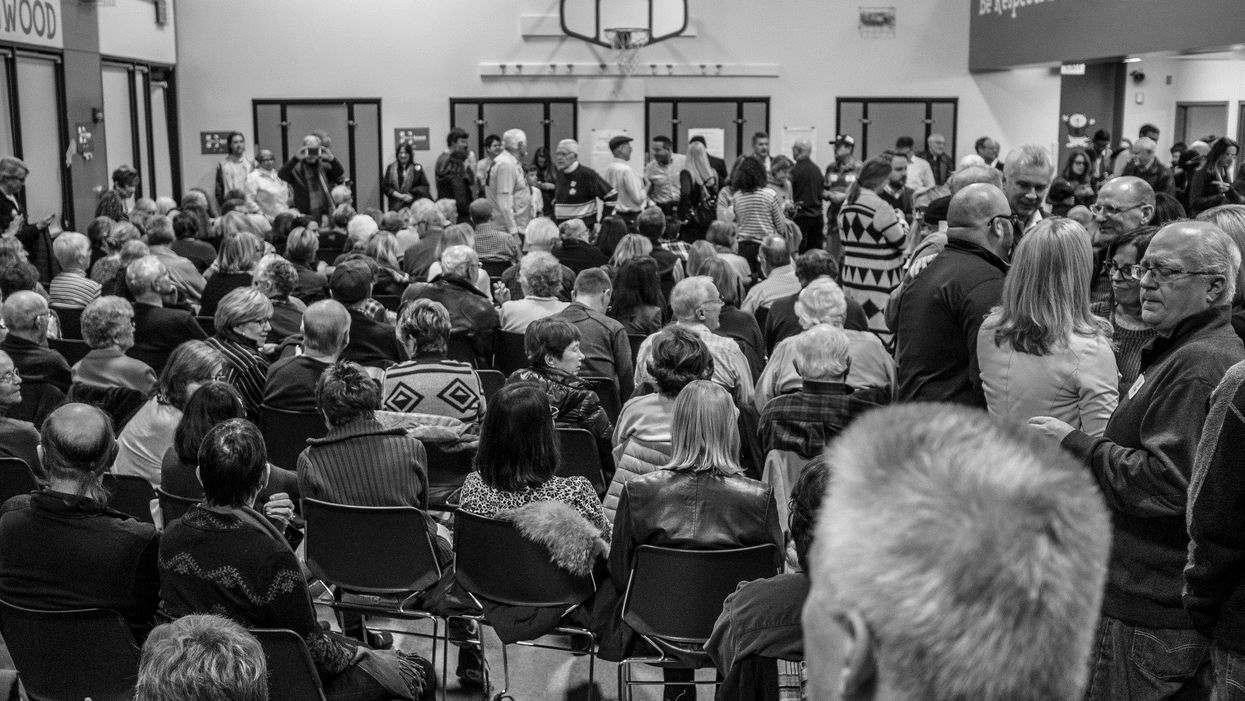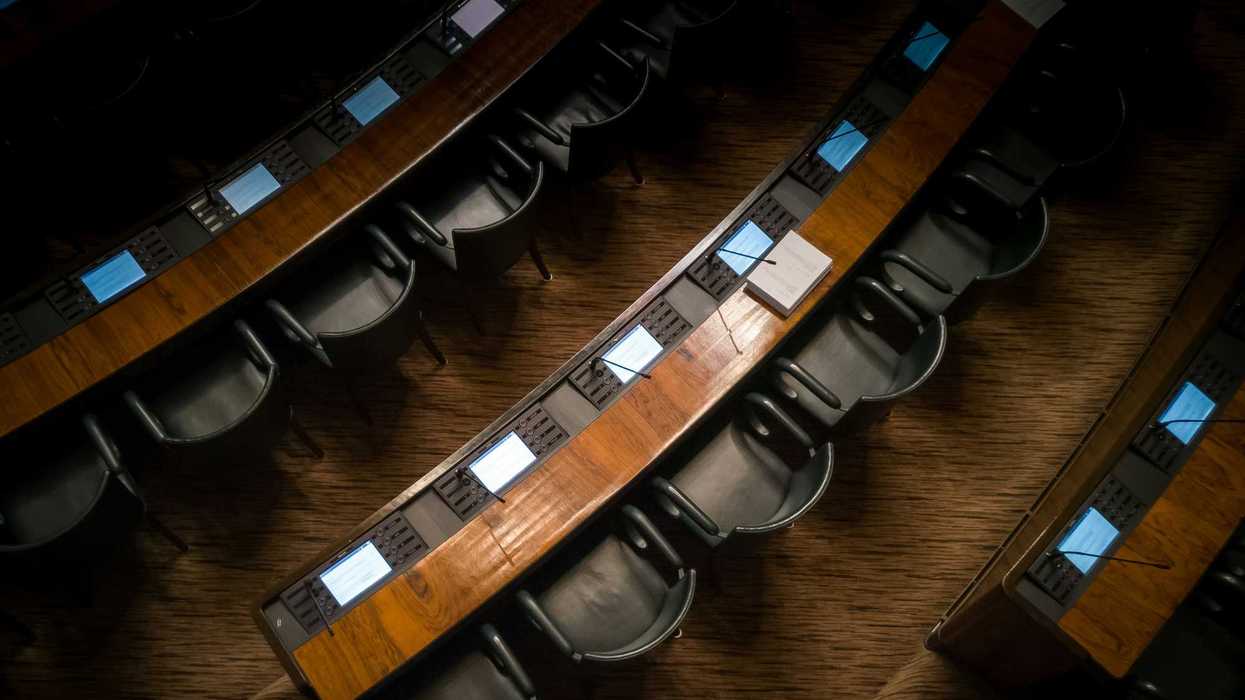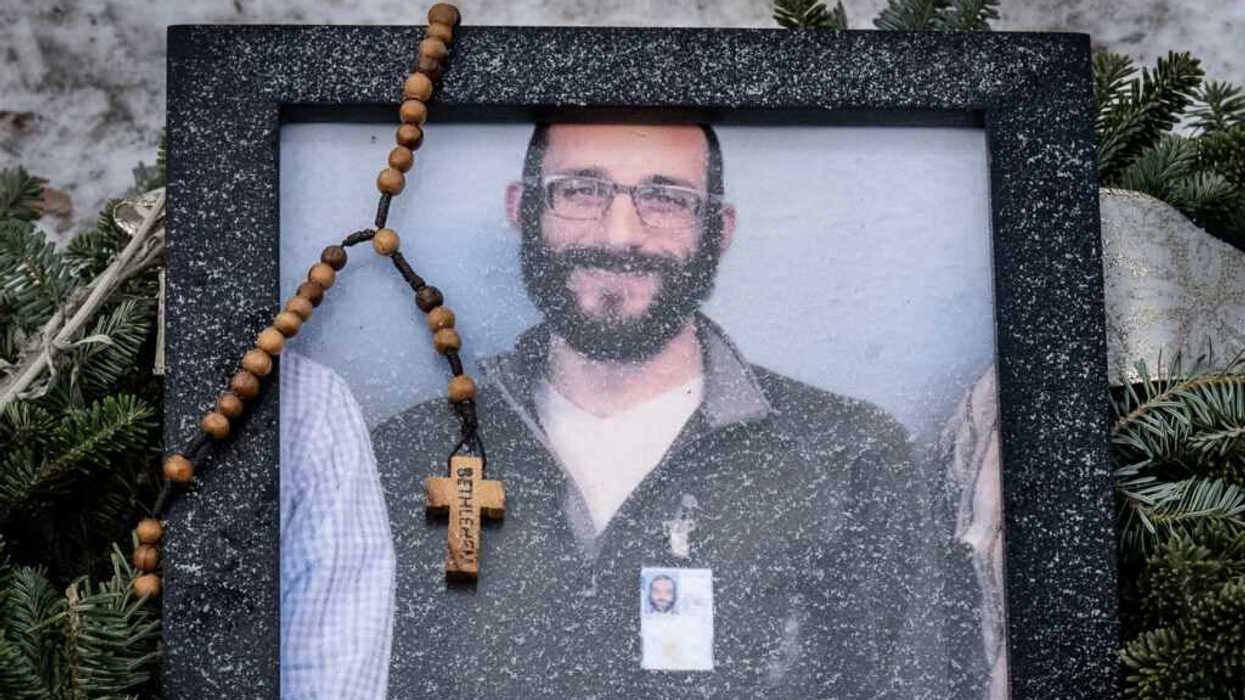When the clock strikes 7 p.m. on Monday, Feb. 3, and Iowa's first-in-the-nation presidential choosing gets going in schools, churches and libraries across the state, it is quickly going to become clear how the process for selecting the Democratic nominee has changed dramatically.
For one thing, a kind of multiple-choice question will play an important part in the results announced that night.
The changes, in response to concerns the system has been rigged in favor of establishment candidates, will make it easier for more Democratic voters to participate in the selection process and improve the chances the winner truly reflects the wishes of rank-and-file members of the party.
At the same time, the new systems for culling the field in Iowa and elsewhere have the potential to sow confusion among voters and those trying to explain the results to the public, leave the views of some voters unrepresented among the delegates who are chosen, and give campaigns the ability to muddy the outcome.
The biggest changes:
- At least 10 states have switched to primaries, leaving Iowa, Nevada and Wyoming as the only states sure to remain reliant on caucuses.
- Iowa and as many as five other states will see the presidential debut of ranked-choice voting, in which voters rank the candidates in order of preference -- and some win delegates because they're the second, third or fourth options for plenty of voters.
Ranked-choice voting is one of the more revolutionary ideas gaining momentum with advocates for a revamped and healthier democracy. They view it as a straightforward and logical way of rewarding candidates with broad backing and a commitment to consensus-building – while punishing those with a divide-and-conquer style aimed at galvanizing a base of impassioned supporters.
But critics say it's confusing, vulnerable to tabulation hijinks and contrary to the nation's first-past-the-post political tradition.
Because Iowa goes first, its use of RCV could prove to be pivotal to the future of the system, either accelerating its acceptance or burying it in derision.
So far, though, a majority of Iowans say they don't yet know enough about the new system to either approve or disapprove, according to polling publishedSunday by the Des Moines Register.
"I think that anybody that tells you they know how this is going to work in actual life is absolutely full of crap," Sue Dvorsky, a former chair of the state party who is not affiliated with any of the 2020 candidates, told the paper. "I don't think they know at all."
But advocates say the enormity of the Democratic field makes 2020 an ideal time for displaying the merits of the ranked-choice system.
"The beauty of ranked-choice voting is that you always end up with a nominee with the widest support," said David Daley, a senior fellow at FairVote, the most prominent group advocating for the procedure. "On top of that, the power of each vote is magnified – you're able to cast a ballot that reflects the complexity of the field."
Aiming to enhance rank-and-file power
The changes are not yet official but are not likely to be abandoned. The Democratic National Committee must sign off by Sept. 13 on the delegate selection plans submitted by state parties. (A few states haven't finalized theirs.) But the plans so far appear to conform to the goals set out in the national rules for selecting delegates approved by the DNC last summer. Among other things they call for expanding "access to voting, including by early voting, no excuse absentee, same-day voter registration, and voting by mail." In addition, the rules call for creating ways to give a voice to people who are unable to be part of the process – such as attending a caucus – because of a disability, illness or simply the inability to get off work.
The first test for how well that's happening will be in Iowa, furthering the central role in deciding who becomes president the state has played since 1976, when a Georgia peanut farmer and former governor named Jimmy Carter used his broad grin and a surprise win in the caucuses to rocket himself to the nomination.
In 2020, in the six days before the regular caucuses, Democrats will be able to participate in "virtual caucuses" using a telephone or computer. It is here where ranked-choice voting will debut, because participants may choose up to five candidates to list in order of preference.
When the first choices are tabulated, only candidates with at least 15 percent of those votes will be considered "viable" and eligible for delegates. The candidate with the fewest first-place votes will be eliminated, with the ballots naming that politician No. 1 redistributed based on all their second-choice selections. That process will be repeated until only candidates remain who have amassed enough overall votes (top choice as well as second-through-fifth choice) to reach the viability threshold.
Similar systems will used by Democratic voters in Alaska, Hawaii, Kansas, Nevada and perhaps Maine for the allocation of their convention delegates.
In Iowa, however, the experiment is more limited. Only 10 percent of the first-round of delegates (to the state convention) will be chosen through the virtual caucuses. So, if participants online or on the phone are more than 10 percent of the total number of Democrats taking part in the overall process, their ranked-choice views will have been underrepresented.
Another scenario that could create party angst is if the top of the sprawling field splits the bulk of initial vote relatively evenly – for example, with six candidates claiming 10 percent, one gaining 15 percent and the other 20 percent. Under this scenario, only two of them would earn delegates, and the candidates combining for 60 percent of the vote would have nothing to show for it.
Another change coming to Iowa and the other states implementing ranked-choice voting in their primaries and caucuses is they will be encouraged to publicize more of their tabulated numbers. In Iowa, this means:
- The original choices of voters in the virtual caucuses.
- The final choices voters made in the virtual causes after their votes are redistributed.
- The original choices of participants in the traditional caucuses.
- The final choices of participants in the traditional caucuses after people move away from their original choices if those candidates don't reach viability.
Troy Price, chairman of the Iowa Democratic Party, conceded that some people might be confused by the cascade of numbers, but added: "We will make it very clear that the results that matter for our purposes are the delegate allocations that come out" on the nationally televised in-person caucus night.
What ranking choices could mean
University of Delaware political scientist David Redlawsk, whose 2011 book "Why Iowa" extolled the state's role in populating the White House, applauds the virtual caucuses and their ranked-choice system. But he predicts the change may mark the demise of the Iowa caucus' prized role as the first test for presidential candidates.
That's because it is in essence a primary, and its expansion to cover the selection of more delegates could justifiably prompt the folks in New Hampshire – which remains home to the first primary – to cry foul.
For their part, New Hampshire Democrats have been working to switch to a ranked-choice primary but the required legislation has stalled in the legislature.
While still fairly rare, ranked-choice voting has been garnering a lot more attention recently.
Last fall, Maine was the first state to use the process in federal elections and it changed the outcome of one of the state's two House races.
Republican incumbent Bruce Poliquin received more of the first-choice votes than Democrat Jared Golden or the two independent candidates but did not quite pass 50 percent. When the two independent candidates were eliminated and their second choices counted, Golden ended up with a majority.
National Republicans cried foul, but Poliquin's lawsuit alleging the new system was unconstitutional was quickly dismissed by a federal judge.
Rob Richie, the FairVote president, said that had it been used for the 2016 GOP presidential nomination, Trump would not have jumped out to the early lead that propelled him to the nomination. He said after the election that ranked-choice voting would have resulted in either Sen. Ted Cruz of Texas or Sen. Marco Rubio of Florida as the nominee, because both "showed greater strength than Trump in head-to-head against Trump."
While most observers agree ranked-choice voting and the switch from caucuses to primaries are expected to have a major impact on the Democrats' election process, they also agree on one other thing:
No one knows for sure who the changes will favor.
For his part, Richie cautions candidates not to have their supporters try to figure out a way to scam the ranked-choice voter system.
"The smartest thing to do is for voters to vote sincerely," he said.





















